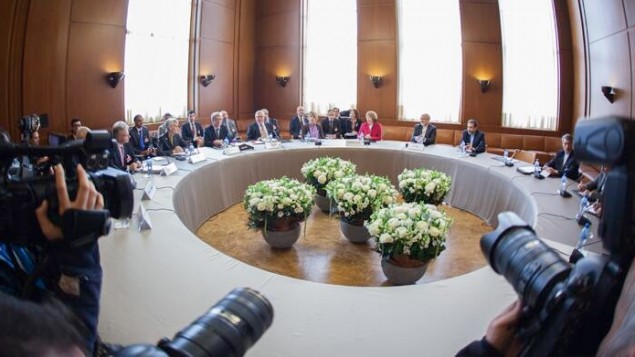Iran: Is a breakthrough really available?
- By Jin Liangxiang
 0 Comment(s)
0 Comment(s) Print
Print E-mail China.org.cn, November 19, 2013
E-mail China.org.cn, November 19, 2013
The recent Geneva negotiations of November 7-9 elicited the imagination of a breakthrough in Iran's nuclear standoff despite their ultimate failure. Such expectations were certainly reasonable since the positions of both sides on the issue have never been this close. However, a deal, which might really become available in the coming weeks or months, does not necessarily mean a breakthrough.
It is true that both the West and Iran face the urgency for a swift agreement. The West has its reasons to make Iran suspend its nuclear program as soon as possible. Iran has already been able to enrich its uranium with a purity of 20 percent and has managed to produce 196 kg of uranium at that level, according to the latest IAEA report. Such a development is widely regarded as the midway towards a nuclear bomb. An agreement could disrupt Iran's potential process of actually completing one.
|
|
|
P5+1 delegations meet for talks on Iran's nuclear program at in Geneva November 7, 2013. |
Barack Obama's administration does understand the significance of a compromise with Iran, which is closely related to the resolution of almost all the major Middle East issues, from the Palestine-Israel peace process to the burning Syrian crisis and Afghanistan and Iraqi transformations. Never have there been two hostile countries with so many shared interests like the U.S. and Iran at this point.
The time for Hassan Rouhani to reach a deal with the West is also very limited. Media and academics felt surprised when President Rouhani initiated to solve the disputes within three to six months; yet Rouhani certainly understood that he might have only six. Shortly after his August inauguration, he gained the support from a most broad echelon, including the Supreme Leader and the Majlis despite the initial modest opposition. Such a favorable domestic atmosphere will last six months at most - going by the divisive nature of Iran's domestic politics.






